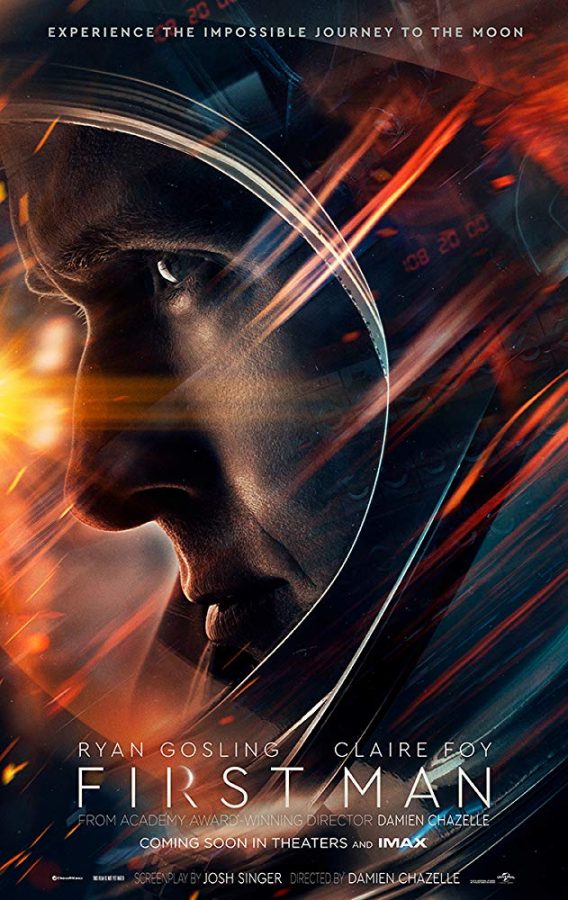First Man: the best film this year
First Man, Damien Chazelle’s third film, is the movie that our polarized country needs. With its thoroughly humanist perspective, it unites rather than divides. It also happens to be the first time Neil Armstrong’s story, portrayed by Ryan Gosling, has been put to the big screen.
The plot is quite simple: as history knows, Neil Armstrong is the first man to step on the moon. But first, he travails a series of emotional tests, the rigor of NASA, multiple life threatening situations and the drama of his troubled family.
Throughout Armstrong’s story, Chazelle, the film’s director, constantly criticizes those who doubted the protagonist’s mission. We are shown Kurt Vonnegut’s concerns with governmental spending, congressmen who think it’s a waste of taxpayer dollars, protestors who hate NASA and wives who just don’t understand.
The Armstrong of this film embodies humanism. We all have familial and career stress; the bulk of this movie is dedicated to Armstrong’s personal stresses. We all deal with the deaths of those close to us at some point or another; Armstrong does this several times. Eventually, we all will have to come to terms with our own mortality; Armstrong tells his children he may not return.
Many conservatives boycotted First Man because they heard Chazelle decided not to include the staking of the flag onto the surface. This hubbub is feeble; sure, it doesn’t show Armstrong planting the flag onto the Moon, but it’s still a mildly patriotic movie: there are one-punchliners that dog on the Soviets and JFK voice-overs. What an irony. This is a conservative movie in a weird, healthy sort of way and boycotting it over a flag is a dumb excuse to miss out on one of the best movies of the year.
But yes — it’s important that this Armstrong didn’t drive the stripes through the lunar surface because it would have been out of place. It would have been a nationalistic twist on a character who embodies all of humanity. America wasn’t Chazelle’s focus: all of humanity was changed, not just the red, white and blue.
Chazelle’s Armstrong isn’t an American hero — he is a human hero.
In one scene, Armstrong isn’t merely a hero, but a soldier. The film contrasts liberal Vietnam protestors who refused to die for their country with Armstrong, who is in the midst of mourning his martyred astronaut friends. The movie tells us that there are two types of men: those who will die for their country and those who won’t. Our protagonist is the former. This theme, again, attacks those who doubted the mission, but more importantly, it normalizes the troubles of Armstrong. Not everyone goes to Vietnam, but all will return death’s call; through this normalizing of the heroic, we all relate.
First Man released on Oct. 12.







